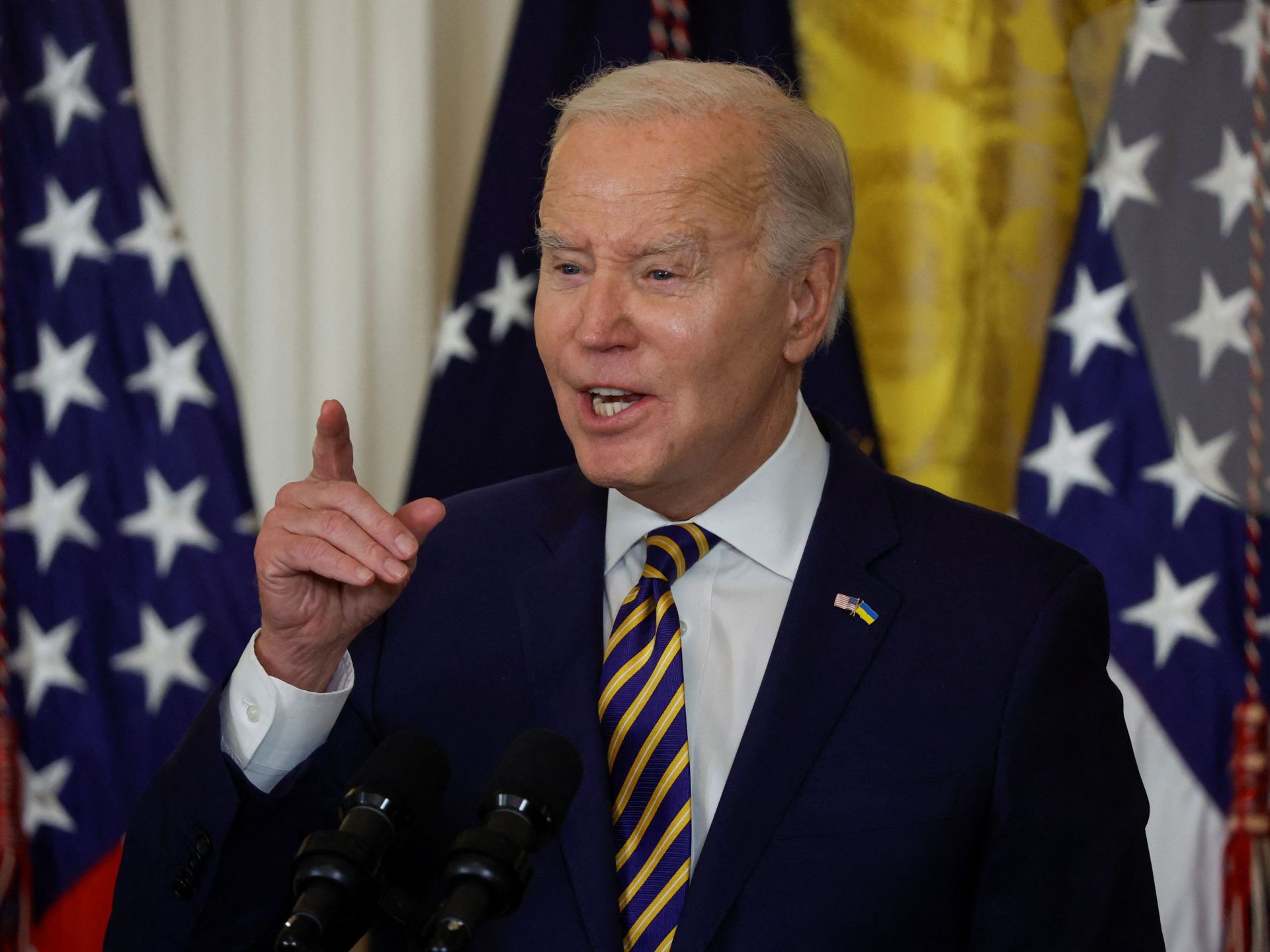Biden made a phone call with Netanyahu regarding the prisoner deal and the Rafah operation (Reuters)
The American website Axios quoted an Israeli official as saying that Israeli Prime Minister Benjamin Netanyahu and US President Joe Biden held a telephone conversation that focused on prisoner negotiations and the possible military operation in Rafah, while US Secretary of State Anthony Blinken said that the response of the Islamic Resistance Movement (Hamas) had been received. There are some very difficult issues to be resolved.
The Israeli Broadcasting Authority said that Netanyahu left the War Cabinet meeting to hold the phone conversation with Biden, which lasted 40 minutes.
Israeli Channel 12 reported that the War Council and the expanded government would hold two separate meetings - Friday night - to discuss the prisoner exchange deal.
This comes at a time when Blinken said that work is continuing with Qatar, Egypt and Israel to reach a final agreement on the prisoners, and that this is now possible.
The American minister added that a proposal reached by the United States, Qatar, Egypt, and Israel was presented to Hamas, and we received a response from it a week ago. This response includes proposals that have no chance of success, but at the same time provides the possibility of working toward an agreement.
He stressed that work is underway on this with Egypt, Qatar and Israel with the aim of reaching a final agreement, stressing that this is possible, but there are still very difficult issues that we must solve.
Burns arrived in Tel Aviv with a previously unannounced visit (French)
Netanyahu and Burns meeting
For its part, Israeli Channel 13 said that Netanyahu held a narrow meeting with CIA Director William Burns, in which the director of Israeli Intelligence (Mossad) David Barnea participated.
According to Israeli Channel 12, Burns - who arrived in Tel Aviv on a previously unannounced visit - informed Netanyahu that Qatar is requesting the entry of more aid into Gaza to push the prisoner deal forward.
The channel added that Netanyahu refused to discuss the request until Israel obtained proof that the medicines had reached the prisoners.
The Israeli Broadcasting Corporation reported that during his meeting with Burns, Netanyahu demanded to know whether the medicines had reached the prisoners, as part of the agreement guaranteed by Qatar and the United States.
The commission quoted Netanyahu as telling Burns that Hamas should abandon what he described as its unrealistic demands, otherwise it is impossible to move forward, as he put it.
Last Tuesday, Burns participated in the quadrilateral meeting in Cairo, with the participation of the head of the Mossad, the head of Egyptian intelligence, Major General Abbas Kamel, and the Qatari Prime Minister and Foreign Minister Mohammed bin Abdul Rahman Al Thani.
In a related development, the American CNN network quoted an informed source as saying that Qatar is still awaiting Hamas’ response to Israel’s position that it presented earlier this week, after the Cairo meeting regarding the prisoner exchange deal.
The network said that the main point of disagreement regarding the exchange proposal is the withdrawal of Israeli forces from Gaza, and Israel had rejected a proposal submitted by Hamas to release a large number of Palestinian prisoners.
For his part, the head of the Hamas political bureau, Ismail Haniyeh, stressed that any agreement must guarantee a ceasefire, the withdrawal of the Israeli army from Gaza, and the completion of a serious exchange deal.
Israeli resentment
Axios also quoted two Israeli officials as saying that Netanyahu, in his meeting with Blinken last week, expressed his dissatisfaction with Washington’s consideration of the option of recognizing the State of Palestine.
The two Israeli officials told the website that Netanyahu made it clear to Blinken that Washington's step to recognize a Palestinian state would harm any effort by the Biden administration regarding peace and normalization, adding that this step would mean "offering a reward" to those who carried out the attack on October 7th.
Dozens of Israelis protested Netanyahu’s decision to freeze negotiations with Hamas (Anatolia)
Tension within the war council
This comes at a time when the Israeli Broadcasting Corporation reported from sources that tension within the War Council had reached its peak between Netanyahu and Council member Benny Gantz, and that they rarely exchanged words, indicating that Netanyahu had doubts regarding Gantz’s communication with American officials.
War Council member Gadi Eisenkot criticized Netanyahu's decisions regarding the negotiating delegation in the prisoner deal. The Israeli Broadcasting Authority also quoted sources as saying that Eisenkot refuses for Netanyahu to make decisions on his own, and this is considered a violation of the war council agreement.
For its part, Israeli Channel 12 said that Netanyahu raised during the government session the issue of opposition to the establishment of a Palestinian state, at the request of extremist Finance Minister Bezalel Smotrich.
In this context, dozens of Israelis closed the street leading to the Israeli Ministry of Defense in Tel Aviv in protest against Netanyahu's decision to freeze negotiations with Hamas.
The demonstrators demanded an immediate deal to return the Israeli prisoners being held in Gaza alive.
In a press conference, the Association of Families of Israeli Prisoners demanded an immediate meeting with members of the War Council, and that the families of the prisoners be informed of the latest developments regarding the course of the talks.
A truce previously prevailed between Hamas and Israel for a week from November 24, until December 1, during which a ceasefire took place, prisoners were exchanged, and very limited humanitarian aid was brought into Gaza, with Qatari-Egyptian-American mediation.
Source: Al Jazeera + agencies

